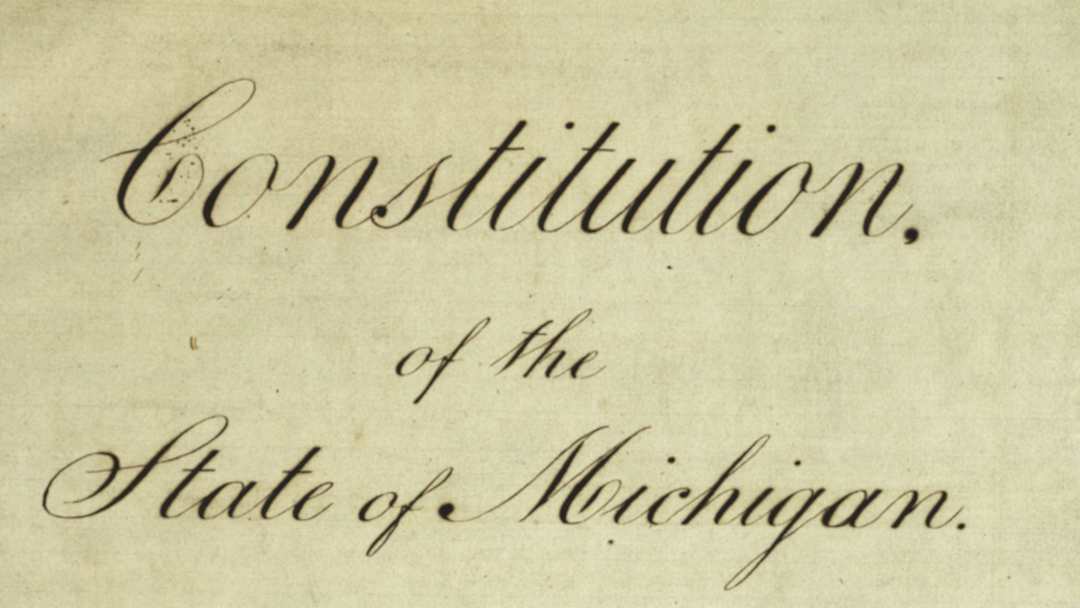These clauses protect property rights and maintain a balance between public needs and individual ownership
The Takings Clauses of the United States and Michigan Constitutions are pivotal components of property law, ensuring that private property is not seized by the government without fair compensation. These clauses protect property rights and maintain a balance between public needs and individual ownership.
United States Constitution: The Fifth Amendment
The Takings Clause is embedded in the Fifth Amendment of the U.S. Constitution, which states, “nor shall private property be taken for public use, without just compensation.” This clause has two primary components: public use and just compensation.
Public Use: The government can only take private property if it is for a public purpose. Historically, this meant projects like highways, schools, or public buildings. However, the interpretation has broadened over time. The landmark case Kelo v. City of New London (2005) expanded public use to include economic development, where the government justified the taking by claiming it would benefit the community economically (Michigan Public).
Just Compensation: The government must provide fair market value for the property taken. This is determined through an appraisal process, though disputes can arise regarding the value. The aim is to ensure the property owner is not financially disadvantaged by the taking.
Michigan Constitution: Article X, Section 2
The Michigan Constitution mirrors the Fifth Amendment’s Takings Clause with some distinct nuances. Article X, Section 2 states, “Private property shall not be taken for public use without just compensation therefor being first made or secured in a manner prescribed by law.”
Public Use: Michigan adheres to the federal standard of public use but has specific state-level interpretations and applications. Following the Hathcock v. Wayne County (2004) decision, Michigan imposed stricter limitations on takings for economic development compared to the broader interpretation allowed by Kelo at the federal level. Hathcock overturned previous rulings that permitted takings for economic development unless the project served a clear public interest, such as addressing blight (Michigan Public).
Just Compensation: Similar to the federal standard, Michigan requires fair market value compensation. The state also provides for additional compensation mechanisms, including potential reimbursement for relocation expenses in certain cases.
Legal and Social Implications
The Takings Clauses aim to protect individuals from the loss of property without proper cause or reimbursement, balancing individual rights with community needs. These clauses ensure that while the government can perform functions beneficial to the public, it cannot arbitrarily or unfairly deprive individuals of their property.
Controversies and Challenges
Broad Interpretation of Public Use: Cases like Kelo have sparked debates on the limits of public use, with critics arguing that broad interpretations can lead to abuse, where private property is taken for private development under the guise of public benefit.
Determination of Just Compensation: Disputes often arise over what constitutes fair market value, with property owners frequently contesting government appraisals.
State vs. Federal Standards: States can impose stricter standards than those set by federal rulings, as seen in Michigan’s response to economic development takings post-Hathcock. This creates a patchwork of interpretations and applications across the country, affecting property rights differently depending on the state.
Recent Developments
The Michigan Supreme Court’s recent ruling in Rafaeli, LLC v. Oakland County emphasized that surplus proceeds from tax-foreclosed property sales should return to former homeowners, underscoring the protection against governmental overreach and unjust enrichment. This ruling aligns with the principles of the Takings Clauses, ensuring fair treatment and compensation for property owners (Michigan Public).
Conclusion
The Takings Clauses of the United States and Michigan Constitutions serve as vital safeguards for property rights, mandating that any governmental taking of private property must be for a public use and with just compensation. These clauses continue to evolve through judicial interpretations and legislative adjustments, reflecting ongoing efforts to balance public interests with private property rights.
Read here:
Legal Counsel and Your Rights
When facing legal challenges, particularly in criminal cases, it is advisable to seek legal counsel immediately.
An experienced attorney can provide guidance on how to navigate interactions with law enforcement while safeguarding your constitutional rights.
Since 1993 our expert legal defense in navigating criminal law matters and protecting your constitutional rights are what we eat for breakfast everyday.
Contact Komorn Law PLLC if you’re ready to fight and win.
Research us and then call us.
More Rights You Should Know

Michigan Supreme Court amendment delays the implementation of a rule amendment
The Michigan Supreme Court issued an order that delays the implementation of a rule amendment that would have impacted law firm advertising. On Aug. 30, 2018 the court stated that it would defer the amendment of MRPC Rule 7.2 that was scheduled to take effect Sept. 1...

Government Drones in Your Life – Yes, They Made up a Reason
Long Lake Township v. Maxon The Costs Outweigh Benefits in Exclusionary Rule Application and the Slippery Slope of Fourth Amendment ProtectionsThe recent decision by the Michigan Supreme Court in Long Lake Township v. Maxon represents a significant shift in the...
Other Articles
Criminal Sexual Conduct (CSC) Second Degree
Criminal Sexual Conduct (CSC) in Michigan: Definitions, Penalties, and Legal References.Criminal Sexual Conduct (CSC) is a set of laws in Michigan that define and penalize various forms of sexual offenses. These laws are categorized into four degrees, with each degree...
Criminal Sexual Conduct (CSC) First Degree
Criminal Sexual Conduct (CSC) in Michigan: First DegreeCriminal Sexual Conduct (CSC) is a set of laws in Michigan that define and penalize various forms of sexual offenses. These laws are categorized into four degrees, with each degree reflecting the severity of the...
Criminal Sexual Conduct (CSC) – Michigan
Criminal Sexual Conduct (CSC) in Michigan: Definitions, Penalties, and Legal References.Criminal Sexual Conduct (CSC) is a set of laws in Michigan that define and penalize various forms of sexual offenses. These laws are categorized into four degrees, with each degree...
I’ve Been Accused of Criminal Sexual Conduct (CSC) in Michigan
If you are innocent and falsely accused of Criminal Sexual Conduct (CSC) in MichiganIf you are innocent and falsely accused of Criminal Sexual Conduct (CSC) in Michigan, it is crucial to act carefully and strategically to protect your rights and ensure the truth comes...
Carrying a Firearm Under the Influence of Cannabis
Laws and Penalties in Michigan of Carrying a Concealed Firearm or EMD Under the Influence of a Controlled Substance.Michigan controlled substance info at end of article and yes cannabis is still a controlled substance 1 at the time of this article... but it is an...
Carrying a Firearm Under the Influence of Alcohol in Michigan
Laws and Penalties in Michigan of Carrying a Concealed Firearm or EMD Under the Influence of Alcohol or Controlled SubstanceAn individual shall not An individual shall not carry a concealed pistol or portable device that uses electro-muscular disruption (EMD)...
Are there exceptions that justify warrantless searches?
Exceptions to your 4th Amendment Rights against Search and Seizure (more to come).The Fourth Amendment of the U.S. Constitution safeguards citizens by prohibiting unreasonable searches and seizures and generally mandates the necessity of a warrant for such intrusions....
Warrantless Searches in Michigan
I don't need a warrant for that...In Michigan, as in the rest of the United States, the Fourth Amendment of the fading Constitution provides individuals with protection against unreasonable searches and seizures by law enforcement. Generally, this means that police...
















